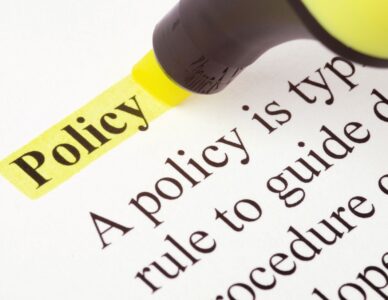Inclusionary practices in BC schools: Are we making progress?
March 12, 2025
Moira Mackenzie
On March 6th, IPE/BC held a public forum asking the question, “Are we making progress on inclusionary practices in BC schools?” Thanks to our panelists, Tamara Taggart, President of Down syndrome BC, Tracy Humphreys, Executive Director of BCCPAC and past-ED of BCEdAccess, and Hilary Thompson, President of Inclusion BC, we learned a great deal. And, unfortunately, the answer to our question was a resounding “NO” from all three.
For years, the BC government has had an admirable policy statement on inclusion on the books, but without the necessary funding, supports and services in place, it is in danger of becoming an empty promise, especially to parents/caregivers who have to work so hard to advocate for  their children with disabilities and/or diverse needs. These parents and many others know it’s a system under stress; they and their children regularly and directly experience the impact of teacher and support staff shortages and chronic underfunding. They also know how difficult it is to access the education decision-makers and be heard. And they speak to the fact that placing students with disabilities and/or diverse needs in classrooms without the necessary supports or, as is sometimes the case, in segregated classrooms, serves to stigmatize their children and seriously undermines their ability to succeed.
their children with disabilities and/or diverse needs. These parents and many others know it’s a system under stress; they and their children regularly and directly experience the impact of teacher and support staff shortages and chronic underfunding. They also know how difficult it is to access the education decision-makers and be heard. And they speak to the fact that placing students with disabilities and/or diverse needs in classrooms without the necessary supports or, as is sometimes the case, in segregated classrooms, serves to stigmatize their children and seriously undermines their ability to succeed.
Further, we learned that it’s not only the children and youth who are stigmatized, it can happen to their parents/caregivers as well, since they are forced to be determined, relentless advocates while also dealing with all the usual demands of parenting. Our panelists, who are all experienced advocates, spoke about the hurdles they and other parents face in trying to access information and be heard. They also know that they are among many, many others in this situation as each of their organization hear from great numbers of parents with similar experiences each year.
As an example, Tamara Taggart shared that Down syndrome BC was interested in finding out more about how the education dollars marked for inclusion were actually being spent. Were they, for example, being diverted to other uses? In communicating with Ministry officials over time, the organization was told that the Ministry doesn’t keep track of this spending and, so, didn’t have an answer. Undeterred, Downs syndrome BC wrote to a sampling of school boards only to be given the same answer- the district didn’t track that spending. It was very frustrating and equally concerning, to say the least.
Tracy Humphreys spoke to the need for school boards to hear the concerns of parents. Too often, access to board meetings and even individual trustees is severely limited. She proposed that trustees make it a practice to include the voices of District Parent Advisory Councils and Parent Advisory Councils at the board table. In the BC School Act, DPACs, which include reps from PACs, are assured of their right to advise the board on any matter pertaining to education in the district and so should be regularly welcomed to share their concerns.
Hilary Thomson was very clear that what we need is “more humans” in the system providing more support. Simply put, placing students in classrooms without supports is not inclusion. Hilary stressed the need to learn from parents and to ask the kids themselves what they need and want.
 Looking back, inclusion first became a government initiative in the 1980s. The Royal Commission on Education report in 1988 and subsequent education School Act revisions mandated the closing of segregated schools and established the requirement that neighbourhood schools were to provide for the success of all children. There was the expectation of significant positive change and, for a time, there were meaningful steps in that direction. But, years of underfunding and the lack of adequate staffing and supports has us seeing inadequate supports as the “norm” and exclusionary practices coming back- reduced time at school, exclusion from certain activities, and, in some cases, even segregated programs and classes.
Looking back, inclusion first became a government initiative in the 1980s. The Royal Commission on Education report in 1988 and subsequent education School Act revisions mandated the closing of segregated schools and established the requirement that neighbourhood schools were to provide for the success of all children. There was the expectation of significant positive change and, for a time, there were meaningful steps in that direction. But, years of underfunding and the lack of adequate staffing and supports has us seeing inadequate supports as the “norm” and exclusionary practices coming back- reduced time at school, exclusion from certain activities, and, in some cases, even segregated programs and classes.
As our panelists reminded us all, inclusion is a recognized right, not just in BC but on the national and international levels. For example, the, Article 24 of the UN Convention on the Rights of Persons with Disabilities , which was ratified by Canada in 2010, speaks directly to the right to an inclusive education with access to necessary accommodations and supports.
So, given that our education system in BC has been struggling with inclusion, what needs to be done now? Hilary was clear that simply placing students in classrooms without the staffing and support they need is not inclusion. What we need is more humans, she told us, along with the willingness of school districts to better involve and learn from both students and parents. Tamara spoke to the need to eliminate segregation; it breeds discrimination and children and youth carry the painful experiences of segregation into adulthood. Tracy reminded us of how important it is for post-secondary institutionsa to ensure that teacher education courses include a significant focus on inclusionary practices. And, all panelists agreed that education assistants need to be recognized for the information, skills and supports they can provide. Both education assistants and are teachers struggling under staffing shortages, underfunding and impossible working conditions.
 We’d add one more step. We’d encourage everyone to call on each school district and the Ministry of Education and Child Care to hold similar forums with parents/caregivers, support staff, educators and students to learn from their experiences and recommit to fully supported inclusion in all of our public schools.
We’d add one more step. We’d encourage everyone to call on each school district and the Ministry of Education and Child Care to hold similar forums with parents/caregivers, support staff, educators and students to learn from their experiences and recommit to fully supported inclusion in all of our public schools.
We’re very grateful to our panelists for sharing their wisdom and experience and for the incredibly important work they undertake. We also thank our very skilled panel moderator, Patti Bacchus, and all of our participants online and in person.
Click here to watch the forum.
For more reading on inclusion in schools in BC today, we’d recommend:
Advocating for Equity, Report of the Vancouver DPAC Inclusive Education Working Group
Communities of Belonging: Conversations from the Think Tank on Meaningful Inclusion of Students with Disabilities and Diverse Needs
Too Many Left Behind: Ensuring Children and Youth with Disabilities Thrive, report of the BC Representative for Children and Youth, BC.
Realities of Inclusive Education in Surrey’s Public Schools
BC Ombudsperson’s Investigation into Exclusion of Students from School
BCEdAccess Exclusion Tracker
Placing a Priority on Public Education
Moira Mackenzie is member of the IPE/BC Board of Directors. She taught in BC public schools for many years, serving as a primary, intermediate, resource ,and learning assistance teacher ,and retired as Executive Director of the BCTF. She feels very privileged to volunteer with IPE/BC and work with others dedicated to quality, inclusive, accessible public education.
 The Ministry of Education and Child Care’s policy manual for the provision of inclusive education services outlines a “continuous and flexible” process for identifying students with disabilities and diverse needs and then providing the necessary supports.
The Ministry of Education and Child Care’s policy manual for the provision of inclusive education services outlines a “continuous and flexible” process for identifying students with disabilities and diverse needs and then providing the necessary supports. least the past 17 years. In 2023-24, for example, provincial government funding only covered 72.3% of what BC school districts spent to provide inclusive education services. In dollar terms, this was a $340 million dollar funding shortfall that districts were forced to cover with their core operational funding. Besides creating pressure for districts to redirect funding from other operational areas, the lack of funding forces districts to ration inclusive education staff and services. Research with teachers has found that this can be seen as having to “triage the system,” including trying to fit in supports through creative scheduling, shifting support intended for one student to multiple students, and cobbling multiple small supports together.
least the past 17 years. In 2023-24, for example, provincial government funding only covered 72.3% of what BC school districts spent to provide inclusive education services. In dollar terms, this was a $340 million dollar funding shortfall that districts were forced to cover with their core operational funding. Besides creating pressure for districts to redirect funding from other operational areas, the lack of funding forces districts to ration inclusive education staff and services. Research with teachers has found that this can be seen as having to “triage the system,” including trying to fit in supports through creative scheduling, shifting support intended for one student to multiple students, and cobbling multiple small supports together. Increased funding alone will not “fix” inclusive education. However, it is the necessary condition for moving BC along the path of more inclusive school communities.
Increased funding alone will not “fix” inclusive education. However, it is the necessary condition for moving BC along the path of more inclusive school communities. This isn’t to say that excessive cell phone use or social media isn’t negatively impacting youth; rather, it suggests that banning phones in schools isn’t the solution politicians often claim it to be.
This isn’t to say that excessive cell phone use or social media isn’t negatively impacting youth; rather, it suggests that banning phones in schools isn’t the solution politicians often claim it to be. shortchanging them by opting for simplistic (and often hard-to-enforce) bans instead of more comprehensive, nuanced approaches? Wouldn’t it be better to help them develop healthy tech habits and the ability to set boundaries for themselves, enabling them to use technology constructively?
shortchanging them by opting for simplistic (and often hard-to-enforce) bans instead of more comprehensive, nuanced approaches? Wouldn’t it be better to help them develop healthy tech habits and the ability to set boundaries for themselves, enabling them to use technology constructively? phone use. Schools and the education system are well-positioned to play a central role in this, but it will take much more than the “headline-grabbing gimmicks” of cellphone bans.
phone use. Schools and the education system are well-positioned to play a central role in this, but it will take much more than the “headline-grabbing gimmicks” of cellphone bans. their children with disabilities and/or diverse needs. These parents and many others know it’s a system under stress; they and their children regularly and directly experience the impact of teacher and support staff shortages and chronic underfunding. They also know how difficult it is to access the education decision-makers and be heard. And they speak to the fact that placing students with disabilities and/or diverse needs in classrooms without the necessary supports or, as is sometimes the case, in segregated classrooms, serves to stigmatize their children and seriously undermines their ability to succeed.
their children with disabilities and/or diverse needs. These parents and many others know it’s a system under stress; they and their children regularly and directly experience the impact of teacher and support staff shortages and chronic underfunding. They also know how difficult it is to access the education decision-makers and be heard. And they speak to the fact that placing students with disabilities and/or diverse needs in classrooms without the necessary supports or, as is sometimes the case, in segregated classrooms, serves to stigmatize their children and seriously undermines their ability to succeed. Looking back, inclusion first became a government initiative in the 1980s. The Royal Commission on Education report in 1988 and subsequent education School Act revisions mandated the closing of segregated schools and established the requirement that neighbourhood schools were to provide for the success of all children. There was the expectation of significant positive change and, for a time, there were meaningful steps in that direction. But, years of underfunding and the lack of adequate staffing and supports has us seeing inadequate supports as the “norm” and exclusionary practices coming back- reduced time at school, exclusion from certain activities, and, in some cases, even segregated programs and classes.
Looking back, inclusion first became a government initiative in the 1980s. The Royal Commission on Education report in 1988 and subsequent education School Act revisions mandated the closing of segregated schools and established the requirement that neighbourhood schools were to provide for the success of all children. There was the expectation of significant positive change and, for a time, there were meaningful steps in that direction. But, years of underfunding and the lack of adequate staffing and supports has us seeing inadequate supports as the “norm” and exclusionary practices coming back- reduced time at school, exclusion from certain activities, and, in some cases, even segregated programs and classes. We’d add one more step. We’d encourage everyone to call on each school district and the Ministry of Education and Child Care to hold similar forums with parents/caregivers, support staff, educators and students to learn from their experiences and recommit to fully supported inclusion in all of our public schools.
We’d add one more step. We’d encourage everyone to call on each school district and the Ministry of Education and Child Care to hold similar forums with parents/caregivers, support staff, educators and students to learn from their experiences and recommit to fully supported inclusion in all of our public schools.
 In schools, staff work diligently to ensure that programs are effective. Measurable goals are created, data is gathered, and results are reviewed regularly. Reports regarding student progress are generated at prescribed intervals. These reports are shared with parents and relevant school staff, covering everything from classroom achievements to individualized programs such as speech-language therapy. The information is securely, confidentially stored for future reference as needed. The rationale behind this process is clear: if we do not measure our efforts, we cannot determine whether our interventions are truly making a difference.
In schools, staff work diligently to ensure that programs are effective. Measurable goals are created, data is gathered, and results are reviewed regularly. Reports regarding student progress are generated at prescribed intervals. These reports are shared with parents and relevant school staff, covering everything from classroom achievements to individualized programs such as speech-language therapy. The information is securely, confidentially stored for future reference as needed. The rationale behind this process is clear: if we do not measure our efforts, we cannot determine whether our interventions are truly making a difference. Schools operate with a great deal of transparency. Classroom teachers provide daily plans that are utilized by themselves or a teacher-on-call. Support staff, such as English Language Learning teachers and contracted specialists like occupational therapists, follow universal referral systems, administer standardized assessments, document observations and provide reports . Caseload information is readily available to school administrators, and priorities are confidentially discussed during school-based team meetings.
Schools operate with a great deal of transparency. Classroom teachers provide daily plans that are utilized by themselves or a teacher-on-call. Support staff, such as English Language Learning teachers and contracted specialists like occupational therapists, follow universal referral systems, administer standardized assessments, document observations and provide reports . Caseload information is readily available to school administrators, and priorities are confidentially discussed during school-based team meetings. As schools work hard to maintain a safe and supportive environment for students, the question remains: Does the presence of School Police Liaison Officers truly contribute to the safety of our schools, or is it simply an unproven assumption? Without clear data and transparent reporting on the program’s effectiveness, it’s difficult to justify its widespread adoption. Perhaps it’s time for a deeper, more data-driven conversation about how best to ensure the safety and well-being of students without relying on programs that lack measurable evidence of success. It’s crucial that we continue to explore alternative solutions that prioritize student welfare while addressing the complexities of modern school safety.
As schools work hard to maintain a safe and supportive environment for students, the question remains: Does the presence of School Police Liaison Officers truly contribute to the safety of our schools, or is it simply an unproven assumption? Without clear data and transparent reporting on the program’s effectiveness, it’s difficult to justify its widespread adoption. Perhaps it’s time for a deeper, more data-driven conversation about how best to ensure the safety and well-being of students without relying on programs that lack measurable evidence of success. It’s crucial that we continue to explore alternative solutions that prioritize student welfare while addressing the complexities of modern school safety.